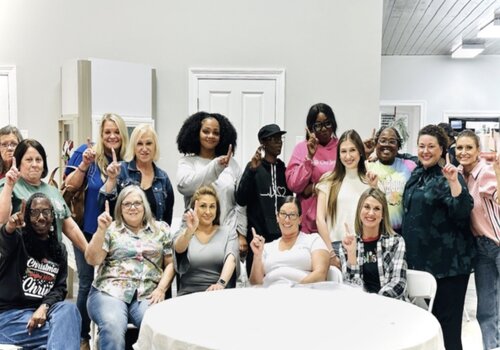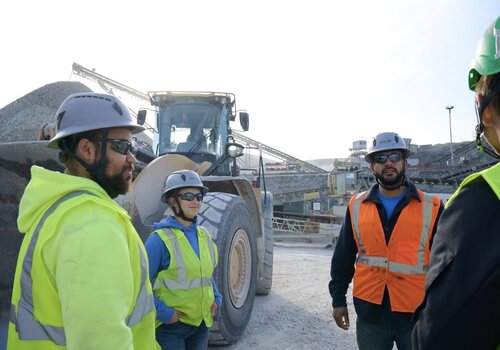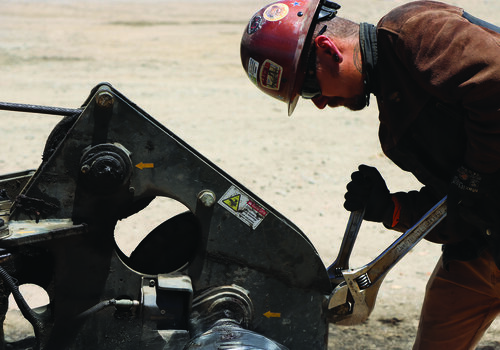By Mark Nesbitt, Nesbitt Training
Most conscious shoppers instinctively know when they are shopping to look at the best before dates on a product before they put it in the cart. Who wants to bring home stale bread or outdated milk only to have it go bad before you have the opportunity to enjoy your purchase.
It is fair to say that I’m addicted to fresh baked goods; I’m not particular; if it has flour and sugar, it’s got me. There is nothing better than fresh bread; it is soft and squishy and easily molded into different shapes and positions.
Over the years, I have noticed that new employees are a lot like fresh bread, the day they start, they seem to be very flexible and forgiving. After they are around for a while, we notice that they are becoming stiff and maybe not quite as flexible as they were at the beginning. Why is that?
I am happy to admit that I hit my best before date after being with one employer for 25 years. I hit a time when I was no longer as valuable as I was on the first day on the job. My employer also decided that I had hit my best before date. Just like that moldy bread, I had to be, for lack of a better word, composted. So, with loads of experience, I think my real-life example may help those looking at an “outdated” employee. The leadership starts to wonder how such a great product went bad before their best before date.
Providing Regular Feedback
I sincerely believe there are many causes; most are avoidable if you are strategic about keeping your team fresh. The first and most crucial leadership technique is to provide honest and regular feedback. Timing is critical; too often, we seem to lose the ability to even meet with them and give them any input. Some companies have adopted the annual or semi-annual employee review. For several years I was a big fan of this process. I thought that if my leader gave me some feedback on my performance, they would be forced to follow up on any required actions. For example, a crescent wrench may do the job; however, I’m not confident it’s the best tool for every job. Any parent will tell you that sitting down with your kids once or twice a year and giving them feedback does not work. When disciplinary needs arise, you must act on them at once. You never wait for the annual review to discuss them or get 360-degree feedback. With people, the small things are the big things!
Creating Career Roadmaps
As leaders, we need to believe in our people and tell them regularly where they are going within the organization. We can’t let them fall into an endless series of Wednesdays with their positions. I can still remember vividly every time my leader sent me to a training session. I would think he seems to care about me; he’s investing in me. Invest in your people if you want them to stay fresh. We need to be continually investing in and growing our people, and they need to know where they are going. How many times have you jumped into your vehicle without a destination in mind? Everyone needs to know where they are going and when they are going to get there. We have to keep reminding them that the journey is the reward and to enjoy the ride. I personally know what it’s like to wake up one day and realize that there is no there when you get there! This growth plan needs to be agreed upon in a one-on-one meeting, and they have to understand why they need to keep growing and how by becoming more valuable, they will be the ultimate winner. Remember, we are never up on the things we aren’t in on!
Battling Complacency
Complacency has to be one of the biggest invisible threats there is to any team. What starts as an infection, unfortunately, all too often ends with the disease. I like to call it the “I have arrived syndrome” cruise control maybe be great when on a long drive, but it’s a killer on the job site. The lack of a good crisis can cause complacency, things become too good, and just like gravity, there becomes that downward pull of even our best people, it happened to me.
We need to constantly point at the scoreboard and show them the score of the game and the time on the clock. Crisis breeds creativity, and progress equals happiness. What can you do to keep them from getting complacent? I would suggest you first look in the mirror and make sure it hadn’t caught up with you. When was the last time you asked anyone to bring an idea to your meeting that will help you either cut waste or become more efficient? People do, as people see. If you are continually trying to improve how you operate, not only are you staying fresh, you are promoting freshness on the team.
You don’t have to look very far to see job postings of all kinds for skilled trades, equipment operators and truck drivers. I, for one, think that the construction industry is a great industry to be in. After spending 30 plus years in the trenches, I have come to really appreciate the operations end of the job. To me, that’s where the action is. We have never in the history of humankind had so many ways of communicating. However, at least one skills gap is almost everywhere, and it’s the communication skills gap. We all need to learn to become better communicators. Communication skills are both teachable and learnable. We can all learn to become more effective communicators. A little communication will go a long way.
Mark Nesbitt is an independent certified coach, teacher and speaker with The John Maxwell Team, the founder of Nesbitt Training and active member of the aggregate community.
Join more than 50,000 industry peers who receive construction industry news and trends each week. Subscribe to CONEXPO-CON/AGG 365.












